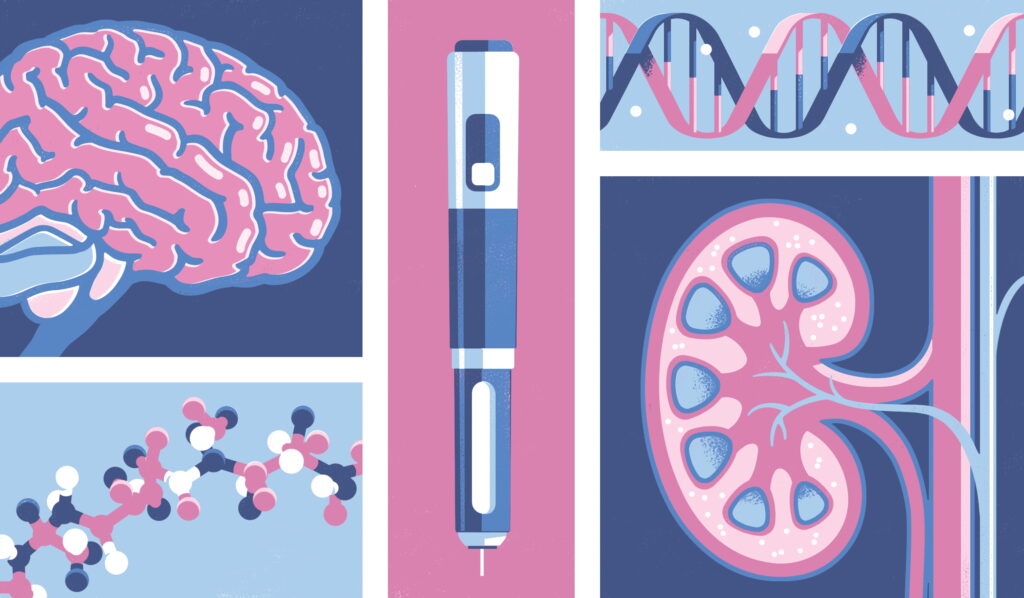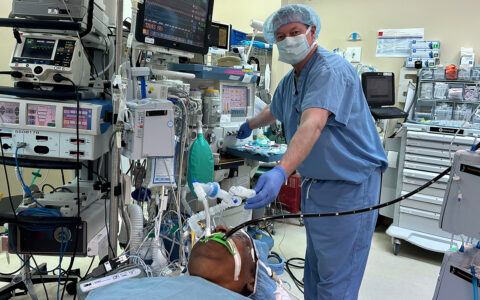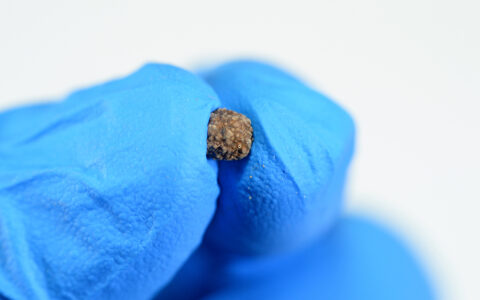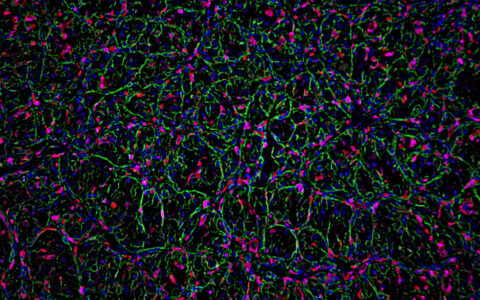Nephrology
Research and innovation from the nephrology experts at Vanderbilt Health

GLP-1 Agonist May Slow Kidney Disease in Broad Range of Patients
A genetic association study suggests the drugs will benefit broad populations.
Read MoreLatest in Nephrology

Testing Normoxia vs. Hyperoxia for Cardiac Surgery
Randomized single-site study answers questions about the potential superiority of either approach.

Stage 1 Kidney Injury Linked to Heart Failure Subtype
Study uncovers relationship between two health conditions: AKI and heart failure with preserved ejection fraction.

Scope Offers Safer Stone Removal in Complex Cases
Ureteroscopy hazards may be lessened with a new scope that provides real-time intrarenal pressure readings.
Partners in Care
Medical expertise infused with integrated technology allows Vanderbilt Health specialists to build partnerships and elevate care in complex and specialized cases. Browse our referral directory or log into our online portal for referring providers.
Make a Referral
Circulating Vesicles Suspected in Cardiorenal Syndrome
Study finds circulating extracellular vesicles during acute heart failure can drive kidney injury.

Signaling Protein in Kidney Cancer Offers Potential Target
Loss of the von Hippel Lindau gene uniquely affects kidney cancer by upregulating a tumor-friendly chemokine.

Which Antibiotics to Choose for Hospital Infection?
Cefepime raised neurotoxicity risk; piperacillin-tazobactam did not raise risk to kidneys as previously thought.

Transplant Excellence Result of Skill, Innovation and Teamwork
Vanderbilt surpasses its previous annual record for solid organ transplants, establishing it as the fifth-largest transplant center in the nation.

Inflammation Factors in Obesity and Kidney Injury
Studies connect receptor pathways to macrophages and inflammation in both obesity and kidney fibrosis.

Exceptional Growth for Amyloidosis Care
Vanderbilt soars with emerging therapeutics and is the first dedicated amyloidosis treatment center in Tennessee.